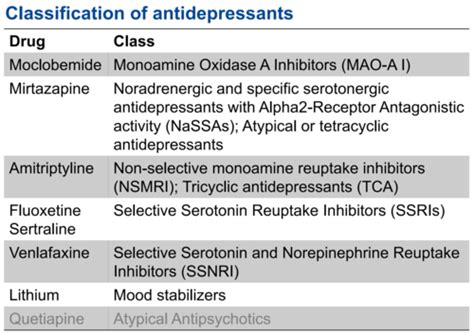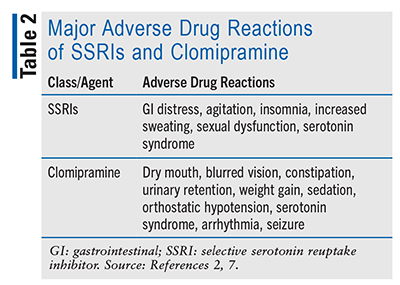Selective Serotonin Reuptake Inhibitors (SSRIs) are a class of medications widely used to treat depression and anxiety. By increasing serotonin levels in the brain, SSRIs help improve mood, alleviate anxiety, and restore emotional balance. These medications have become a cornerstone in mental health treatment due to their effectiveness and generally favorable side effect profile. In this article, we will explore how SSRIs work, the conditions they treat, and the benefits they offer. We’ll also discuss potential risks, compare SSRIs with other antidepressants, and highlight the importance of personalized treatment plans. Understanding SSRIs can empower individuals to make informed decisions about their mental health care and set realistic expectations for their treatment journey.
bzcat.xyz will explore this topic comprehensively.
1. Introduction to SSRIs
Selective Serotonin Reuptake Inhibitors (SSRIs) have revolutionized the treatment of mental health conditions like depression and anxiety. Introduced in the 1980s, SSRIs are now among the most commonly prescribed antidepressants. They work by increasing the availability of serotonin, a neurotransmitter that plays a crucial role in regulating mood, emotion, and behavior. Unlike older antidepressants, SSRIs are specifically designed to target serotonin reuptake, making them more effective and with fewer side effects.
The development of SSRIs marked a significant advancement in psychiatric medicine, offering a safer and more tolerable option for patients. Their widespread use is a testament to their efficacy in treating not only depression and anxiety but also other conditions like obsessive-compulsive disorder (OCD), panic disorder, and post-traumatic stress disorder (PTSD). As the understanding of SSRIs continues to evolve, they remain a vital tool in managing mental health, helping millions of people lead healthier, more balanced lives.

2. How SSRIs Work
SSRIs, or Selective Serotonin Reuptake Inhibitors, function by altering the brain’s chemistry to improve mood and alleviate symptoms of depression and anxiety. Serotonin is a neurotransmitter that plays a vital role in mood regulation, sleep, and overall emotional well-being. Under normal conditions, serotonin is released into the brain’s synaptic cleft, a small gap between nerve cells, where it binds to receptors on the receiving neuron, transmitting signals that influence mood. Afterward, serotonin is typically reabsorbed by the releasing neuron in a process called reuptake.
SSRIs work by blocking this reuptake process, allowing more serotonin to remain in the synaptic cleft and continue to stimulate the receiving neurons. This increased availability of serotonin enhances communication between nerve cells, which can help elevate mood and reduce anxiety. Over time, this adjustment in serotonin levels can lead to significant improvements in symptoms for individuals with depression, anxiety disorders, and other related conditions.
The effects of SSRIs are not immediate; it usually takes several weeks for the medication to build up in the system and produce noticeable changes. This delayed response is due to the gradual process of neurochemical adaptation that occurs as the brain adjusts to the increased serotonin levels. Despite the wait, SSRIs are considered highly effective and are a cornerstone of modern mental health treatment.

3. Commonly Prescribed SSRIs
Several SSRIs are commonly prescribed to treat depression, anxiety, and related conditions. Each of these medications works in a similar way by increasing serotonin levels in the brain, but they may differ in terms of side effects, dosing, and the specific symptoms they target.
Fluoxetine (Prozac) is one of the most well-known SSRIs, often prescribed for depression, anxiety disorders, and obsessive-compulsive disorder (OCD). It has a long half-life, meaning it stays in the body longer, which can be beneficial in reducing withdrawal symptoms when discontinuing the medication.
Sertraline (Zoloft) is another widely used SSRI, particularly effective in treating depression, social anxiety disorder, and post-traumatic stress disorder (PTSD). It is favored for its relatively mild side effect profile.
Escitalopram (Lexapro) is known for its effectiveness in treating generalized anxiety disorder and depression with fewer side effects than some other SSRIs.
Other commonly prescribed SSRIs include Paroxetine (Paxil) and Citalopram (Celexa), each offering unique benefits depending on the individual’s specific needs and medical history.

4. Conditions Treated by SSRIs
SSRIs are primarily prescribed to treat a variety of mental health conditions, with depression and anxiety disorders being the most common. They are particularly effective in managing major depressive disorder (MDD), where they help alleviate persistent sadness, loss of interest in activities, and other depressive symptoms.
In addition to depression, SSRIs are widely used to treat generalized anxiety disorder (GAD), where they reduce excessive worry and anxiety that interferes with daily life. Panic disorder is another condition where SSRIs can be beneficial, helping to prevent panic attacks and reduce the overall frequency and severity of symptoms.
Obsessive-compulsive disorder (OCD) also responds well to SSRIs, which can help reduce the intensity and frequency of obsessive thoughts and compulsive behaviors. Social anxiety disorder and post-traumatic stress disorder (PTSD) are other conditions where SSRIs have proven effective, helping patients manage the anxiety, fear, and stress associated with these disorders.
Additionally, SSRIs are sometimes prescribed for premenstrual dysphoric disorder (PMDD), a severe form of premenstrual syndrome, and can also be used in the treatment of bulimia nervosa to reduce binge-eating and purging behaviors.
5. Benefits of SSRIs
SSRIs offer significant benefits for individuals struggling with depression, anxiety, and other mental health conditions. One of the primary advantages of SSRIs is their effectiveness in alleviating symptoms, often leading to a marked improvement in mood, energy levels, and overall quality of life. Unlike older classes of antidepressants, SSRIs are generally well-tolerated, with fewer side effects, making them a preferred option for many patients and healthcare providers.
Another key benefit of SSRIs is their safety profile. They have a lower risk of causing sedation, weight gain, and cardiovascular issues compared to other antidepressants. Additionally, SSRIs are less likely to lead to dependency, which is particularly important for long-term treatment.
SSRIs are also versatile, as they can be used to treat a range of conditions beyond depression, including anxiety disorders, OCD, PTSD, and PMDD. This versatility makes them a valuable tool in the management of various mental health challenges. Moreover, SSRIs can be tailored to individual needs, with different medications within the class offering specific benefits based on a patient’s unique symptoms and medical history.
6. Potential Side Effects and Risks
While SSRIs are generally well-tolerated and effective, they are not without potential side effects and risks. Common side effects include nausea, headaches, and gastrointestinal issues, which often diminish after the first few weeks of treatment. Some individuals may experience sexual side effects, such as decreased libido or difficulty achieving orgasm, which can be persistent and impact quality of life.
SSRIs can also cause insomnia or increased anxiety, particularly when treatment first begins. Adjusting the dosage or timing of the medication can sometimes alleviate these issues. Weight gain is another concern, though it tends to be less pronounced with SSRIs compared to older antidepressants.
A significant risk associated with SSRIs, especially in younger populations, is the potential for increased suicidal thoughts or behaviors, particularly during the initial stages of treatment or when doses are adjusted. This risk underscores the importance of close monitoring by healthcare providers during the early phases of treatment.
Additionally, discontinuation syndrome can occur if SSRIs are abruptly stopped, leading to symptoms such as dizziness, irritability, and flu-like sensations. To minimize these risks, SSRIs should be tapered off gradually under medical supervision. Despite these potential side effects and risks, SSRIs remain a cornerstone in the treatment of many mental health conditions, offering substantial benefits when used appropriately.
7. SSRIs vs. Other Antidepressants
SSRIs are often compared to other classes of antidepressants, such as tricyclic antidepressants (TCAs) and monoamine oxidase inhibitors (MAOIs). One major advantage of SSRIs over TCAs is their more favorable side effect profile. While TCAs can cause significant side effects like dry mouth, blurred vision, and weight gain, SSRIs are generally better tolerated with fewer anticholinergic effects. Additionally, SSRIs are less likely to cause cardiovascular issues, making them safer for individuals with heart conditions.
MAOIs, another older class of antidepressants, are effective but require strict dietary restrictions to avoid potentially dangerous interactions with certain foods and medications. SSRIs, in contrast, do not have these dietary limitations, making them easier to manage.
Compared to atypical antidepressants, such as bupropion (Wellbutrin) and mirtazapine (Remeron), SSRIs have a different side effect profile. Atypical antidepressants may be preferred for patients who experience significant sexual side effects with SSRIs or who have specific symptoms not well-addressed by SSRIs. Ultimately, the choice between SSRIs and other antidepressants depends on individual patient needs, symptom profiles, and potential side effects.
8. Personalized Treatment Plans
Personalized treatment plans are crucial for optimizing the effectiveness of SSRIs and ensuring the best outcomes for patients. Each individual responds differently to medications, so tailoring the treatment to specific needs is essential. Factors such as the patient’s medical history, the presence of co-occurring conditions, and their response to previous treatments play a significant role in determining the most suitable SSRI.
A personalized approach involves starting with a thorough assessment by a healthcare provider to identify the most appropriate SSRI based on the patient’s symptoms and medical profile. The dosage is then adjusted to achieve the best balance between effectiveness and tolerability. Regular follow-up appointments are important to monitor progress, assess side effects, and make any necessary adjustments.
In some cases, a combination of medications or adjunct therapies might be recommended to enhance treatment outcomes. The goal of personalized treatment plans is to address the unique aspects of each patient’s condition, improve symptom management, and minimize potential side effects, leading to a more effective and satisfactory treatment experience.
9. Managing Expectations and Monitoring Progress
Managing expectations and monitoring progress are integral aspects of effective treatment with SSRIs. It’s important for patients and healthcare providers to understand that SSRIs typically take several weeks to produce noticeable improvements in mood and anxiety symptoms. Initial effects may include some minor side effects, which usually subside as the body adjusts to the medication. Patience and adherence to the prescribed regimen are key to achieving the best outcomes.
Regular follow-up appointments are essential for monitoring progress. During these visits, healthcare providers assess the effectiveness of the SSRI, adjust dosages if necessary, and address any side effects. Open communication between patients and providers helps in managing any emerging concerns and making timely adjustments to the treatment plan.
Setting realistic goals is also crucial. Patients should be encouraged to recognize gradual improvements and be aware that complete symptom relief may take time. A collaborative approach, where patients are actively involved in their treatment and progress is closely monitored, ensures that the SSRI therapy is both effective and well-tolerated, leading to better overall mental health outcomes.
10. Future Directions and Research
The future of SSRIs and their development holds promise for further improving mental health treatment. Ongoing research aims to enhance the efficacy and tolerability of these medications while reducing potential side effects. One focus is on the development of novel SSRIs that offer improved targeting of serotonin receptors, potentially leading to more effective treatments with fewer adverse effects.
Researchers are also exploring personalized medicine approaches, using genetic and biochemical markers to tailor SSRI treatments to individual profiles. This could help in predicting which patients are most likely to benefit from specific SSRIs and minimize trial-and-error in finding the right medication.
Another area of investigation involves understanding the long-term effects of SSRIs on brain function and overall health. Studies are examining how SSRIs impact brain plasticity, neurogenesis, and cognitive function over extended periods.
Additionally, research is looking into combining SSRIs with other therapeutic approaches, such as psychotherapy or digital health interventions, to enhance treatment outcomes. This integrative approach may address complex mental health conditions more effectively.
As research continues, these advancements aim to provide more targeted, effective, and personalized treatment options for individuals struggling with depression and anxiety, ultimately improving their quality of life.
SSRIs have transformed the treatment of depression and anxiety, offering effective relief for many individuals. By increasing serotonin levels in the brain, these medications help improve mood and reduce symptoms. While managing side effects and personalizing treatment are crucial, ongoing research promises to enhance the efficacy and safety of SSRIs. With continued advancements, SSRIs will remain a cornerstone in mental health care, improving lives and fostering well-being.
bzcat.xyz
